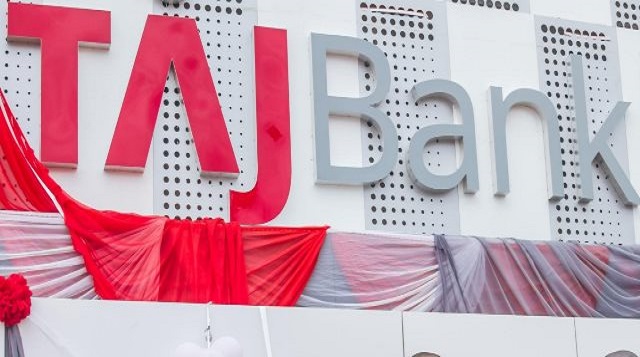E-Financial
MM Schemes Achieve N300m in January

Transactions across the various mobile money (MM) schemes in the country hit a record N300 million as at the end of January, underscoring a tipping point in the shift towards the cashless society, Nigeria CommunicationsWeek can now reveal.
The value was achieved in over 12,000 transactions and did not include transactions carried out within individual networks.
Though, a marginal increase of N50million over the value for November last year when value stood at N250million exchanged in 10,000 deals; it however showed the increasing ability to replace cash with digital money transferred via mobile phone.
Nigeria CommunicationsWeek gathered that the ability of a mobile money user of a mobile scheme to send money directly to the wallet of a user on any other service provider was made possible by connectivity service being provided by National Central Switch (NCS) that is offering the handshake.
Without interconnectivity the difficult decision of which mobile money service to choose might be influenced by which members of the customer’s peer group are already using a given service.
Emmanuel Okoegwale, Principal Associate, MobileMoneyAfrica, said, that there are only 47 Mobile Money deployments in West Africa out of 100 deployments in Africa.
According to him, Africa continent has shown great promise in the mobile financial services sphere but yet grapples with millions that are actively unbanked across all regions.
“Financial inclusion has become the buzz word within the regulatory, policy, financial, innovators, and technology circles and in the formal financial services space but significant barriers still stand in the way of reaching the bottom of the pyramid in Africa.” He added.
Okoegwale however stated that: “Nigerians should expect a much more aggressive roll out of services as collaborations deepen between licensed providers and Mobile network operators and other industry ecosystem players as we have seen with MTN / Diamond bank.
He also said that “Affordable and stable mass access channels like USSD and STK becoming more available and cheaper to use which in turn will scale up adoption since mobile money is a mass market product and should be immediately compatible with all mobile devices. Agency growth and spread will be the most significant achievement in 2014 as more formal retail distribution outlets step into mobilemoney and agency banking services to lower their transaction cost and reduce cash at hand in their outlets. Generally, the outlook for mobilemoney in 2014 is positive and encouraging based on the developments that we recorded in 2013”.
According to him, a recent report released by African Development Bank, on Financial Inclusion in Africa, finds that technological advances such as mobile money innovations have started to make inroads into banking the unbanked in Africa, with 14% of adults reporting they have used it in the past 12 months in comparison to less than 6% of adults in all other regions globally that used mobile money in the past year.
The African Development Bank predicts technology could be a “game changer” in drawing the financially excluded into the formal banking world.
Brian Larsen, Managing Director, Chams Mobile, identified major challenge of mobile financial services as network connectivity that has lead to both high costs for each transaction and high fixed IT costs.
He explained that current financial schemes such as mobile banking depend on network connectivity, making the network indispensable.
Chalapathi Rao Immidi, director, Business Development, mFino, said financial inclusion helps to make basic, essential services and utilities like energy, health, education, and water more accessible to people at the bottom of the economic pyramid.
“Access to affordable financial services helps in overcoming poverty, reducing income disparities, and contributes towards overall social and economic development,” he said.
According to him, some of the barriers to adoption of Mobile Financial Services include limited interoperability, where less than 20% of the products are fully or partially interoperable. Stringent regulation, where there is need to provide status for electronic transactions, flexibility in the application of CDD requirement for technology base solutions.
It would be recalled that transactions among mobile money schemes commenced in March last year after the expiration of the deadline of February 28 Central Bank of Nigeria (CBN) gave to operators to connect to National Central Switch (NCS) that is offering the handshake.
Presently, there are 16 companies licensed by CBN to operate mobile money transactions.
The CBN had said that the MMOs were licensed to accelerate the transformation of the nation’s payment system which would emphasis use of mobile phones.
E-Financial
Retiree Slams N50m Suit against over Alleged Privacy Breach, Unauthorized Accounts

Abiodun Olokunjuwon, a retired civil servant based in Ibadan has instituted a N50 million lawsuit against Moniepoint Microfinance Bank at the Oyo State High Court, alleging that the fintech company opened unauthorized bank accounts in her name without her knowledge or consent.

Filed in February 2026, the suit is among the first significant cases testing the enforcement of the Nigeria Data Protection Act 2023 against a Nigerian fintech institution.
According to the statement of claim, the plaintiff became aware of the alleged unauthorized accounts only after her legitimate bank account was restricted pursuant to a garnishee order linked to a debt she denies incurring.
The restriction reportedly prevented her from accessing funds needed for essential transactions.
The claimant alleges that Moniepoint opened two separate accounts in her name using her National Identification Number (NIN) and Bank Verification Number (BVN) without proper authorization or verification.
Following the discovery, she submitted a Data Subject Access Request (DSAR) under the NDPA 2023. Documents allegedly provided by the bank, according to the suit, revealed significant verification lapses.
The plaintiff claims the accounts were opened using falsified documents, including what she describes as a fake NIN slip and contact information unrelated to her.
She further alleges that the accounts listed a Lagos residential address where she has never lived.
The suit contends that Moniepoint failed to implement adequate identity verification and address confirmation procedures before creating and operating the accounts. It further alleges breaches of statutory obligations under the NDPA 2023, including:
- Failure to ensure personal data processed was accurate and lawfully obtained
- Failure to implement appropriate technical and organizational security measures
- Failure to prevent unauthorized or fraudulent processing of personal data
The claimant maintains that these alleged lapses resulted in serious personal and financial harm.
The plaintiff is seeking N50 million in damages for emotional distress, health complications, and disruption to her financial life.
She is also asking the court to order the permanent closure of the allegedly unauthorized accounts.
No date has been fixed for hearing on the matter.
E-Financial
TAJBank Secures A1 Ratings from Agusto, Datapro

TAJBank Limited has received A1 credit ratings from Agusto & Co and Datapro, marking an upgrade from the Bbb+ rating assigned by Agusto about two years ago and placing the non-interest lender among the highest rated operators in Nigeria’s non-interest banking space.

The rating agencies attributed the improved score to the bank’s high quality balance sheet and strong earnings ratios in the 2025 financial year. The assessment also covered credit risk and operational resilience.
Despite the prevailing economic challenges, the bank was noted to have strengthened its position through operational efficiency and customer-focused services in line with ethical banking principles.
Speaking on the development during an interactive session with journalists on the sidelines of a banking stakeholders’ event in Abuja, the Founder and Chief Executive Officer, Hamid Joda, described the ratings as evidence of the bank’s focus on risk management and internal controls.
He said, “TAJBank Limited latest ratings by these reputable agencies have again validated the management’s commitment to world-class standardisation of the bank’s operations, especially in terms of innovative, real time, techno-powered services and risk management for our growing customers on a sustainable basis.”
Joda added that the bank’s priority remains the deployment of high operational standards to protect customers’ interests.
“As we have consistently maintained, our primary goal is to deploy world-class operational standards and services to protect the interest of our customers with a view to surpassing their expectations and retaining TAJBank at the leading edge of the NIB subsector on a sustainable basis.
“The message these latest best ratings by Agusto & Co and Datapro of our bank is sending to our customers, investors and stakeholders in the non-interest banking space is that with TAJBank, they can be rest assured of safety of their investments, transactions and readiness of the bank’s management to give all that it takes to grow their businesses and support their individual socio-economic wellbeing come rain or shine,” he said.
Also commenting on the ratings, the bank’s Executive Director, Sherif Idi, said the A1 scores reaffirmed management’s commitment to best practice standards.
“The A1 ratings by Agusto & Co and Datapro, the foremost ratings agencies in the country, have reaffirmed TAJBank’s management’s unwavering commitment to best practice standards through prioritisation of investment in human capital, innovative technologies and branch network expansion to consistently make our bank the preferred choice for customers in the NIB subsector of the banking sector,” he said.
E-Financial
Fidelity Bank Launches HerFidelity Apprenticeship Programme 2.0 to Boost Women Entrepreneurship

Fidelity Bank Plc, leading financial institution, has announced the launch of the second edition of its flagship women-empowerment initiative, the HerFidelity Apprenticeship Programme 2.0 (HAP 2.0).

Fidelity Bank
Designed to equip women with practical, income‑generating skills and structured pathways to entrepreneurship; HAP 2.0 will build on the success of its inaugural edition held in 2023.
Speaking with journalists at a media chat to herald the launch of HAP 2.0, the Divisional Head, Product Development, Fidelity Bank Plc, Osita Ede, explained that the initiative has been enhanced to deliver greater impact.
“HerFidelity Apprenticeship Programme 2.0 reflects our commitment to continuous improvement. Having evaluated feedback from the first edition, we have returned with stronger partnerships and deeper mentorship programmes to ensure that women acquire not just skills, but sustainable economic opportunities,” he said.
“At the heart of the programme is guided, real‑world learning. Participants will undergo intensive apprenticeship training under reputable institutions and industry experts across select fields such as hair styling, shoe making, auto mechatronics, and interior decoration,” Ede added.
He noted that HerFidelity Apprenticeship Programme 2.0 goes beyond skills acquisition by offering participants a wide range of business advisory services. These include business and financial literacy training, mentorship support throughout the apprenticeship journey, access to Fidelity Bank’s women‑focused and SME financial solutions, as well as guidance on business formalisation and growth strategies.
Further emphasising the bank’s vision, Ede said, “By integrating structured mentorship with entrepreneurial development, Fidelity Bank is positioning women not just as trainees, but as future employers, innovators, and economic contributors within their communities. This aligns with our mandate to help individuals grow, businesses thrive, and economies prosper.”
Interested participants are encouraged to indicate their interest by visiting https://bit.ly/Apprenticeshipbyherfidelity.
Ranked among the best banks in Nigeria, Fidelity Bank Plc is a full-fledged Commercial Deposit Money Bank serving over 10 million customers through digital banking channels, its 255 business offices in Nigeria and United Kingdom subsidiary, FidBank UK Limited.
The Bank is a recipient of multiple local and international Awards, including the 2024 Excellence in Digital Transformation & MSME Banking Award by BusinessDay Banks and Financial Institutions (BAFI) Awards; the 2024 Most Innovative Mobile Banking Application award for its Fidelity Mobile App by Global Business Outlook, and the 2024 Most Innovative Investment Banking Service Provider award by Global Brands Magazine. Additionally, the Bank was recognized as the Best Bank for SMEs in Nigeria by the Euromoney Awards for Excellence and as the Export Financing Bank of the Year by the BusinessDay Banks and Financial Institutions (BAFI) Awards.

 News3 days ago
News3 days agoABoICT Lecture 2026 to Focus on Impact of AI, IoT on Business Operational Efficiency

 General News3 days ago
General News3 days agoLeo Stan @ 70: Blessed and Bruised by Country, Eyes Next Disruption

 General News2 days ago
General News2 days agoZinox Technologies and TD Africa Forge Strategic Partnership to Revolutionize African Tech Ecosystem

 Telecom2 days ago
Telecom2 days agoUwaje Pays Tribute to Leo Stan Ekeh @70

 E-Financial2 days ago
E-Financial2 days ago$214Bn Missing, Institutions Silent: Is Accountability Dead in Nigeria?

 Telecom2 days ago
Telecom2 days agoCyber Immunity Emerges as Shield for Nigerians Amid Rising Scams

 General News2 days ago
General News2 days agoNITDA, Abia Partner on Enterprise Architecture Reform

 E-Business2 days ago
E-Business2 days agoInterswitch Partners Abia to Digitise Public Hospitals
























